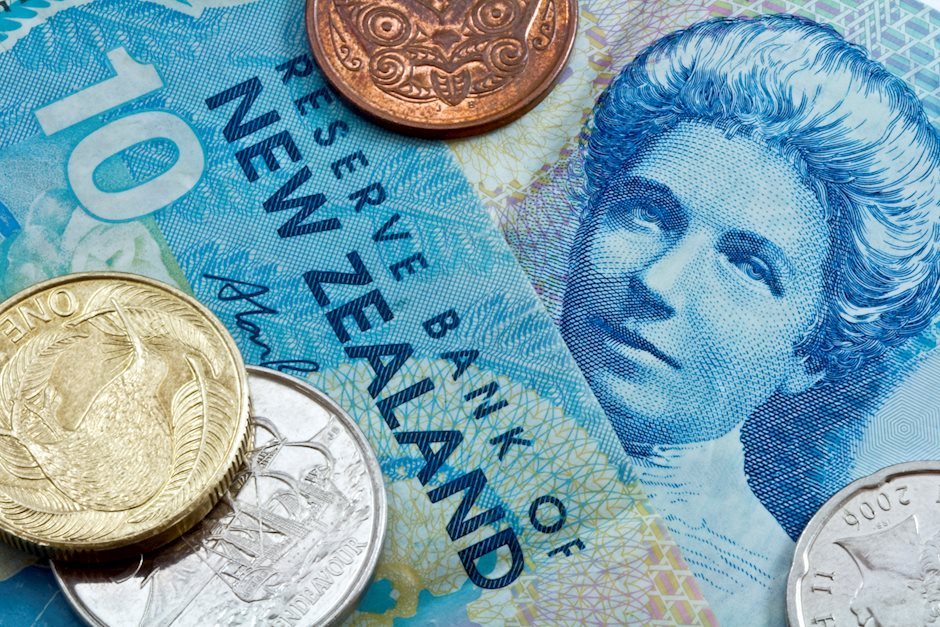NZD/USD seems vulnerable near multi-month low, holds above 0.5900 amid softer USD
- NZD/USD trades with a negative bias for the sixth straight day amid worries about China.
- The risk-off impulse further contributes to driving flows away from the risk-sensitive Kiwi.
- Dovish Fed expectations keep the USD bulls on the defensive, albeit do little to lend support.
- Traders now look to the US Q2 GDP for a fresh impetus ahead of the US PCE data on Friday.

The NZD/USD pair remains under some selling pressure for the sixth successive day on Thursday and trades around the 0.5920 area during the Asian session, just above its lowest level since early May touched the previous day.
The New Zealand Dollar (NZD) continues to be undermined by rising bets for an early interest rate cut by the Reserve Bank of New Zealand (RBNZ), bolstered by the weaker CPI report released last week. Apart from this, concerns about a slowdown in China – the world's second-largest economy – and a weaker risk tone further contribute to driving flows away from antipodean currencies, including the Kiwi.
Meanwhile, the US Dollar (USD) struggles to attract any meaningful buyers and remains on the defensive below a two-week high touched on Wednesday amid expectations for an imminent start of the Federal Reserve's (Fed) rate-cutting cycle. This is holding back traders from placing aggressive bearish bets around the NZD/USD pair. Moreover, investors prefer to wait on the sidelines ahead of important US macro releases – the Advance Q2 GDP print this Thursday and the Personal Consumption Expenditures (PCE) Price Index on Friday.
The crucial data will play a key role in influencing the Fed's policy path, which, in turn, will drive the USD demand in the near term and provide a fresh directional impetus to the NZD/USD pair. Nevertheless, the aforementioned fundamental backdrop seems tilted in favor of bearish traders, suggesting that any attempted recovery might still be seen as a selling opportunity and runs the risk of fizzling out rather quickly.
US Dollar PRICE Today
The table below shows the percentage change of US Dollar (USD) against listed major currencies today. US Dollar was the strongest against the Australian Dollar.
| USD | EUR | GBP | JPY | CAD | AUD | NZD | CHF | |
|---|---|---|---|---|---|---|---|---|
| USD | -0.02% | 0.10% | -0.99% | 0.06% | 0.45% | 0.16% | -0.22% | |
| EUR | 0.02% | 0.12% | -0.97% | 0.09% | 0.48% | 0.18% | -0.19% | |
| GBP | -0.10% | -0.12% | -1.08% | -0.04% | 0.37% | 0.06% | -0.32% | |
| JPY | 0.99% | 0.97% | 1.08% | 1.06% | 1.45% | 1.14% | 0.77% | |
| CAD | -0.06% | -0.09% | 0.04% | -1.06% | 0.40% | 0.11% | -0.28% | |
| AUD | -0.45% | -0.48% | -0.37% | -1.45% | -0.40% | -0.28% | -0.68% | |
| NZD | -0.16% | -0.18% | -0.06% | -1.14% | -0.11% | 0.28% | -0.40% | |
| CHF | 0.22% | 0.19% | 0.32% | -0.77% | 0.28% | 0.68% | 0.40% |
The heat map shows percentage changes of major currencies against each other. The base currency is picked from the left column, while the quote currency is picked from the top row. For example, if you pick the US Dollar from the left column and move along the horizontal line to the Japanese Yen, the percentage change displayed in the box will represent USD (base)/JPY (quote).
Author

Haresh Menghani
FXStreet
Haresh Menghani is a detail-oriented professional with 10+ years of extensive experience in analysing the global financial markets.

















